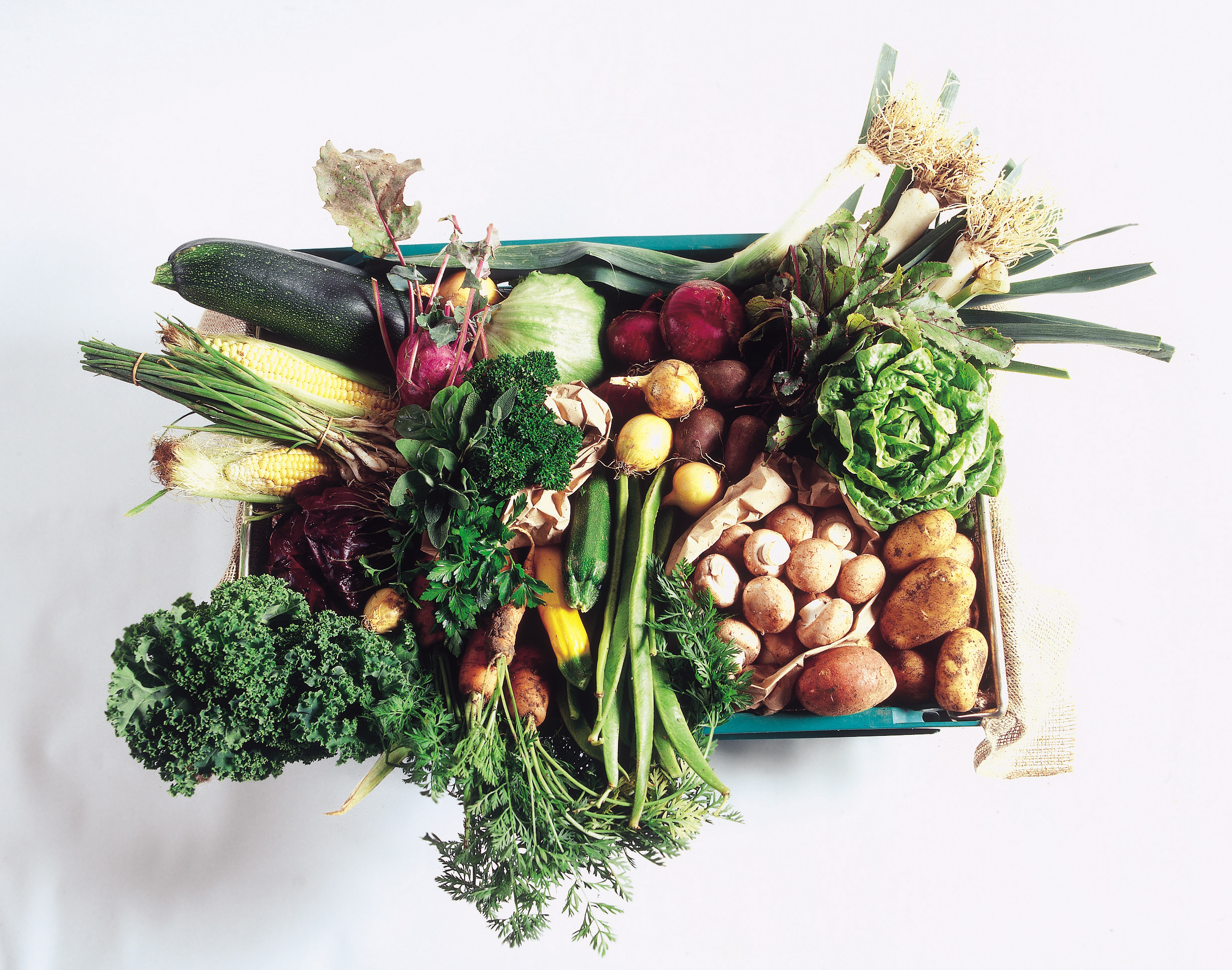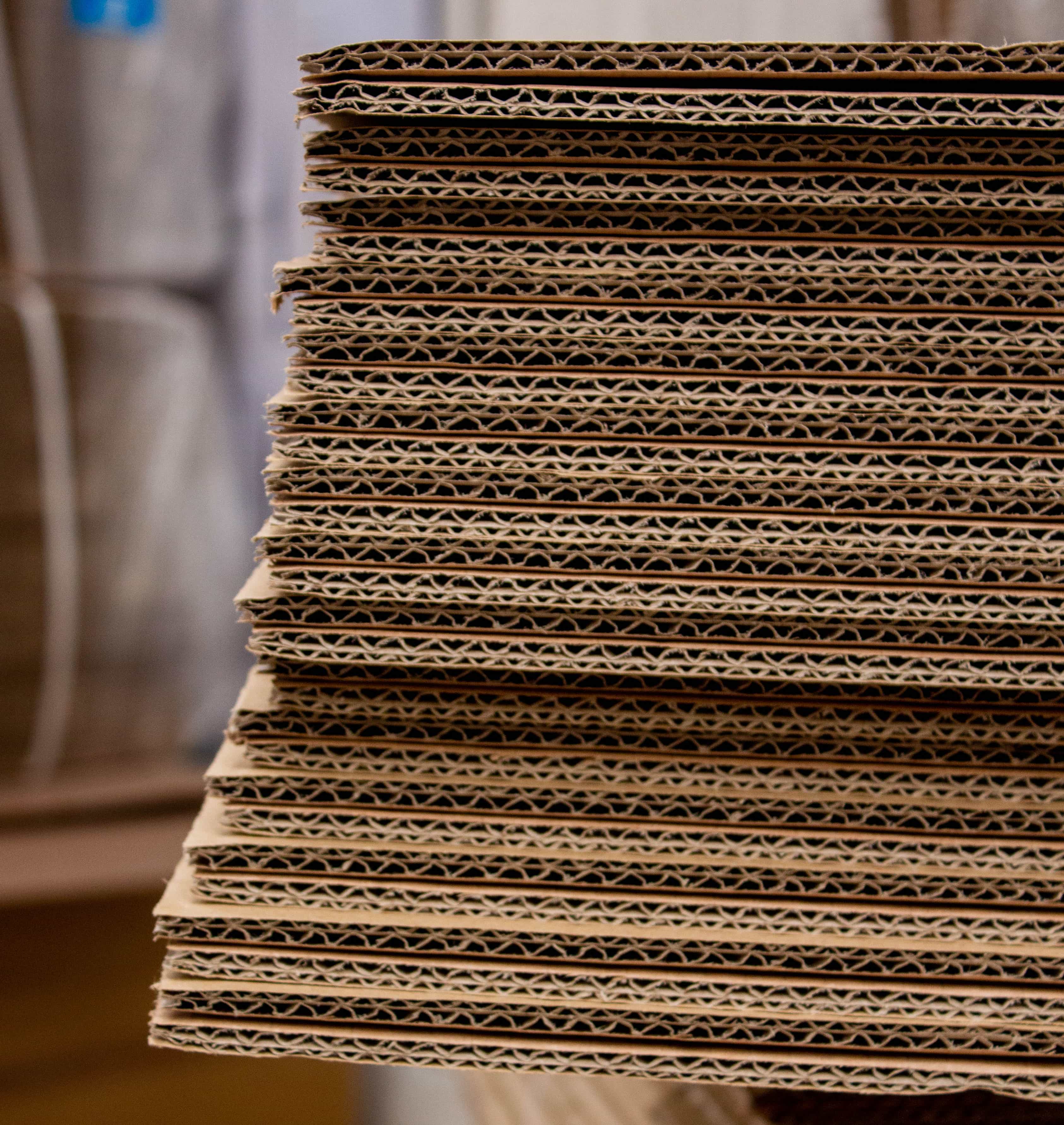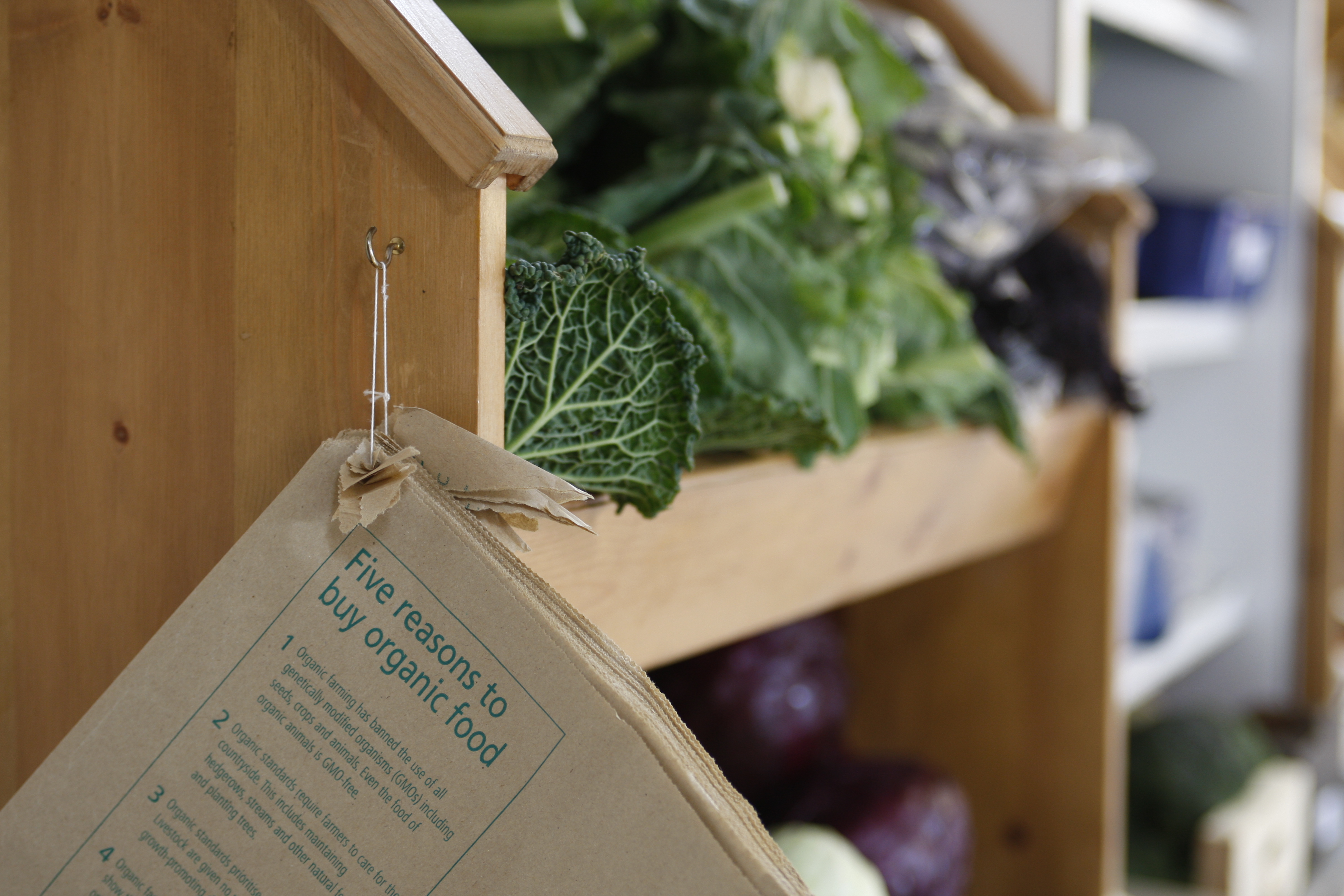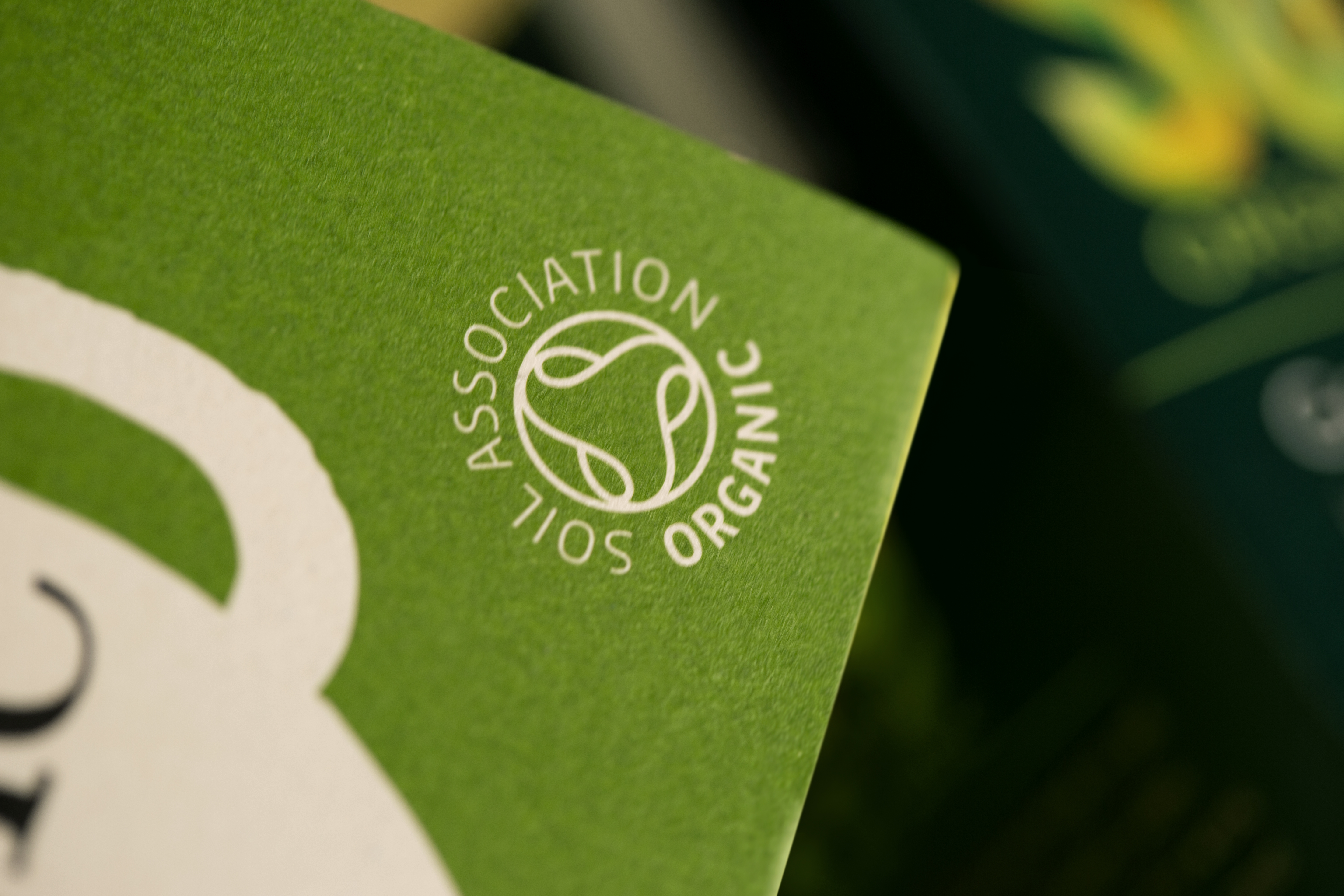- Soil Association
- Certification
- Packaging resources for organic businesses

Packaging resources
Packaging information and resources for organic businesses
There is understandable public demand for sustainable packaging. With many packaging options on the market, how can you make the right choice for your business and the environment?
As the leading UK organic certifier, the Soil Association Certification believe that packaging is an important aspect of what makes a product truly organic.
Below we share our priorities for packaging and guidance for organic businesses looking to enhance their packaging sustainability.
Our packaging priorities
Click on the priority to reveal further information.
-
Simplification, standardisation, recyclability, and end-of-life built into packaging from the design stage
Transitioning to sustainable packaging requires collaboration from brands, recyclers, consumers, and local authorities. Organic businesses can contribute to this goal by finding packaging formats that are simple, standardised, and compatible with kerbside recycling. This effort pays off as consumers expect to be able to recycle products at home and often judge product sustainability on how easy that is.
-
The most harmful plastics removed from circulation in the packaging and product supply chain
We believe that plastics must play an important role in the packaging supply chain, but understanding when and how to use plastic packaging – and when to use alternatives – is key to any businesses packaging decisions. Not all plastics are equal, some known as ‘problem plastics’ should be phased out. These are plastics with negative environmental and/or human health impacts in their manufacture, use or disposal. They are single-use, unnecessary or there are alternatives available, and are not consistent with recycling, composting or reuse systems.
-
No harm to human health or the environment from packaging products
Many packaging products use chemical applications to enhance functions such as grease proofing and oxygen barriers, to prolong shelf-life or to meet food safety regulations. Some of these chemicals widely used in packaging have been found to migrate into food products or escape into the environment. We restrict the use of some of the most harmful chemicals used in packaging manufacture, like phthalates and bisphenol A (BPA), and we work with partner organisations to stay on top of any emergent risks.
-
Packaging materials sourced from systems that support sustainable land management
Where possible we believe there should be limited use of virgin materials in packaging manufacture – the use of wastes, surplus and recycled materials must come first. When this is not possible and when raw materials are required they should come from sustainable land management systems such as responsibly managed forests.
-
Investment in the infrastructure and regulation to support the removal, reuse and reduction of packaging
The current reliance on packaging in the food system is unsustainable. Tackling this challenge presents opportunities to rethink packaging infrastructure altogether. At the top of the waste hierarchy, removal, reuse, and refill systems are the key area for investment and innovation in packaging. This requires government, business, and citizens collaboration to be truly effective.
Our packaging standards
Soil Association Certification is the only UK organic certifier with higher standards on packaging. Our packaging standards aim to maximise the benefits and avoid the negative impacts of packaging. They extend throughout the food supply chain to ensure that sustainability is built into the whole packaging cycle and aim to embed the organic principles into product packaging wherever possible.
When people purchase organic products certified by Soil Association Certification, they can do so with the confidence that the packaging is consistent with organic principles of Health, Ecology, Fairness and Care.
Soil Association packaging standards are developed and reviewed to remain on top of emerging innovations in the sector. Any changes we make to standards are guided by industry experts and then consulted on publicly.
-
How to support consumers with sustainable packaging
There is huge public interest in reducing the impact of packaging. Finding ways to support consumers to make informed decisions around packaging, reuse and recycling should be central to an organic business considerations.
‘Excess packaging and waste’ are the top consumer eco concern according to the 2023 Soil Association organic market report. Along with meeting these concerns, businesses need to simplify packaging to make it consistent with recycling or reuse systems. Here are some useful resources to consider in this process:
- Clear on Plastics provides explainers to some of the most challenging questions that businesses and consumers consider on plastics.
- A guide on how to engage consumers in recycling led by the On Pack Recycling Label (OPRL) which is considered one of the clearest and most relevant approaches to packaging design and communication.
Consumers expect the organic sector to be leading on new innovations in packaging. Reuse and the related infrastructure is a major challenge facing the food system going forward.
Here are some developing initiatives and resources to help your business overcome this challenge:
- The refill coalition is a UK network working to create a standardised solution to deliver refills at scale.
- Realising reuse is an EU initiative with policy and business recommendations for making the transition to reuse.
- Rethinking packaging is at the heart of the work led by Ellen Macarthur Foundation and this report evaluates initiatives from across the world that are delivering business to consumer reuse models.
-
Understanding different packaging materials
Packaging materials come in all shapes and sizes. Finding the right material or application for your product is a challenge many businesses face. Investment in infrastructure, trialling alternatives, maintaining product quality while satisfying customers are all things to be considered when assessing packaging options. We have signposted to some practical guides to help you choose the right material:
- Understanding plastic packaging and the language we use to describe it. WRAP outline the materials used to make packaging, the way plastics can behave and the terminology used to describe plastics.
- Compostable plastic packaging guidance. WRAP explain how compostable plastics should be avoided where there is potential to contaminate plastic recycling. It outlines key applications where use of compostable plastics is appropriate, such as tea bags, and the importance of clear labelling for citizens.
- Paper packaging resources from Soil Association Certification. We are experts in sustainable forestry and offer support to any businesses looking to certify to responsible forest management standards.
Both the Forest Stewardship Council (FSC) and Programme for the Endorsement of Forest Certification (PEFC) manage their own marketplaces for certified products:
Whether you are looking for canning options without BPA, or PFAs free paper packaging we recommend the ChemSec Marketplace.





